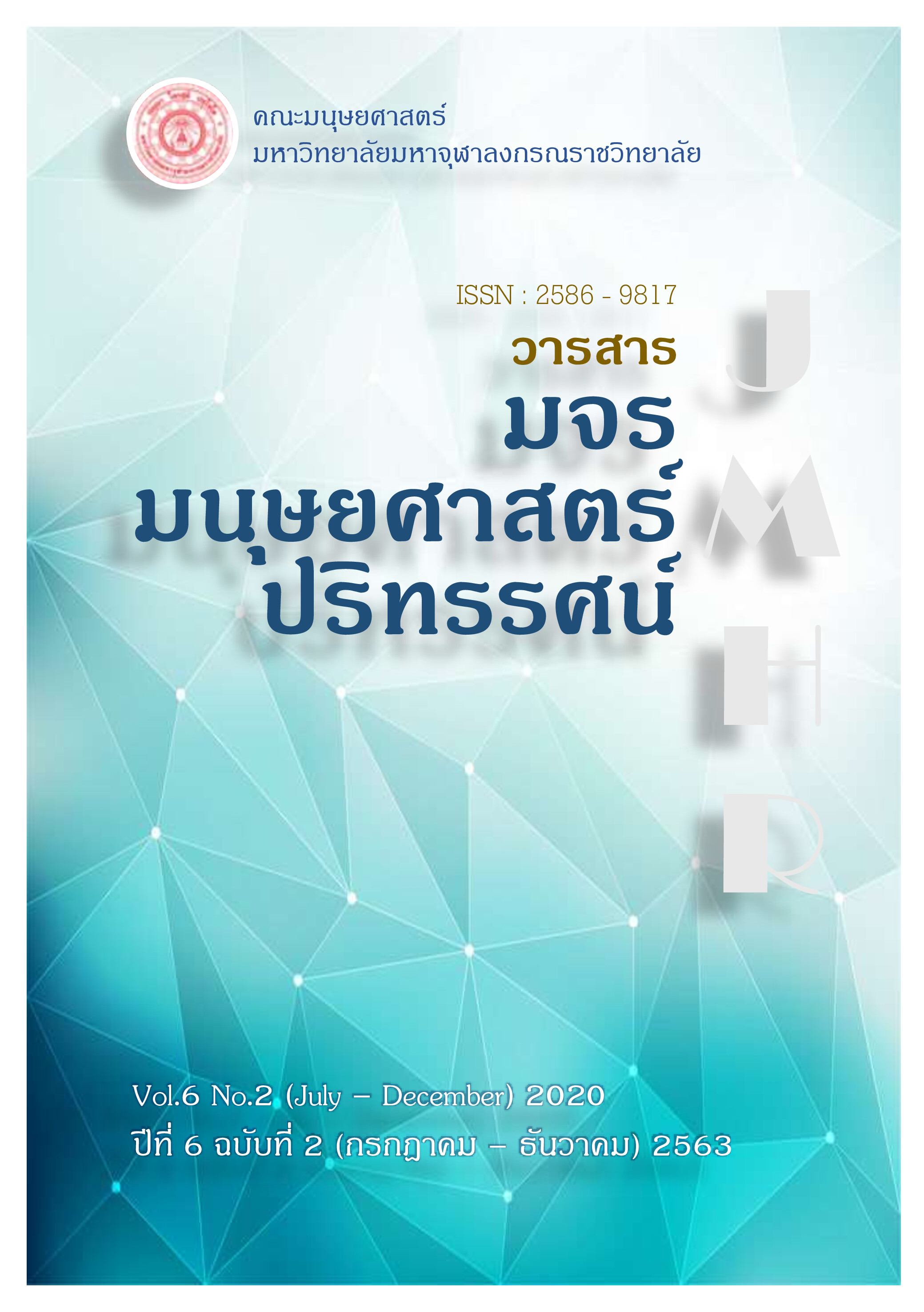The Ways for Improving English Language Skills for Graduate School Students in Thailand 4.0 Graduate Program in Faculty of Education Mahachulalongkornrajavidyalaya University
คำสำคัญ:
Improving English Language, English Language Skillsบทคัดย่อ
The purposes of this research study are 1) the ways for improving English language skills for graduate school students in Thailand 4.0 Mahachulalongkorn rajavidyalaya University 2) To analyze the problems of the ways for improving English language skills for graduate school students in Thailand 4.0 Mahachula longkornraja-vidyalaya University. 3) To find the ways to solve the problems of the ways for improving English language skills for graduate school students in Thailand 4.0 Mahachulalongkornrajavidyalaya University.
Result used by the above tools. The researcher also used classroom observation to sake the study more valuable. The data collected from the students and teachers through different instruments were presented in the form of percentages and tables. The data were studied using both quantitative and qualitative procedures. The tools used for collecting data were questionnaire and interview. The major findings were poor foundation of students in English language, moderate teaching English language techniques strategies, low students’ motivation and shortage of English language materials at students' home and library. The main conclusion is that factors related to students, teachers and home tend to be moderated.
1. This study is to assess the factors that affect students' English language skills and its possible solutions. To achieve this, descriptive research design and mixed research method were employed. 2. The total population of 186 students was selected by random sampling technique. Questionnaires and standardized test were major data collecting instruments and semi-structured interview and classroom observation were supportive tools. 3. To collect the relevant data, standardized test was given for the students to check the difficult level and problem area of students' English language skills and semi-structured interview was conducted with teachers to crosscheck the previous.
เอกสารอ้างอิง
Duke & Pearson. (2002). Effective Practices for developing English language comprehension. Faculty of Teacher Training and Education: Mahasaraswati Denpasar University.
Gay Fawcett. (2012). Vocabulary in Action: lesson from Great Literacy Teachers. Thornbury Road: Plymouth PLC6 7PP. UK,
Ishtla Singh. (2005). The history of English, A Student's guide. Hodder Education. Part of Hachette Livre UK. 338 Euston Road, London NW1 3BH.
Lane & Wright. (2007). Improving reading thought thinking aloud. Learning and Instruction. Ways improve English language skill, 1(2).
Milligan, and Berg. (1999). The effect of whole language on the comprehending ability of first grade children English speaking Improvement (Master of Science in Education Curriculum). At Fredonia of New York University.
Patricia Ackert. (1999). Concept and Comments: A R speaker for Students of English as a Second Language. Boston, Massachusetts: USA.
Kucan, L.& Beck. (1997). Thinking Aloud and speaking Comprehension Research (M.A. Thesis). Department of administrator department, New York: University.






